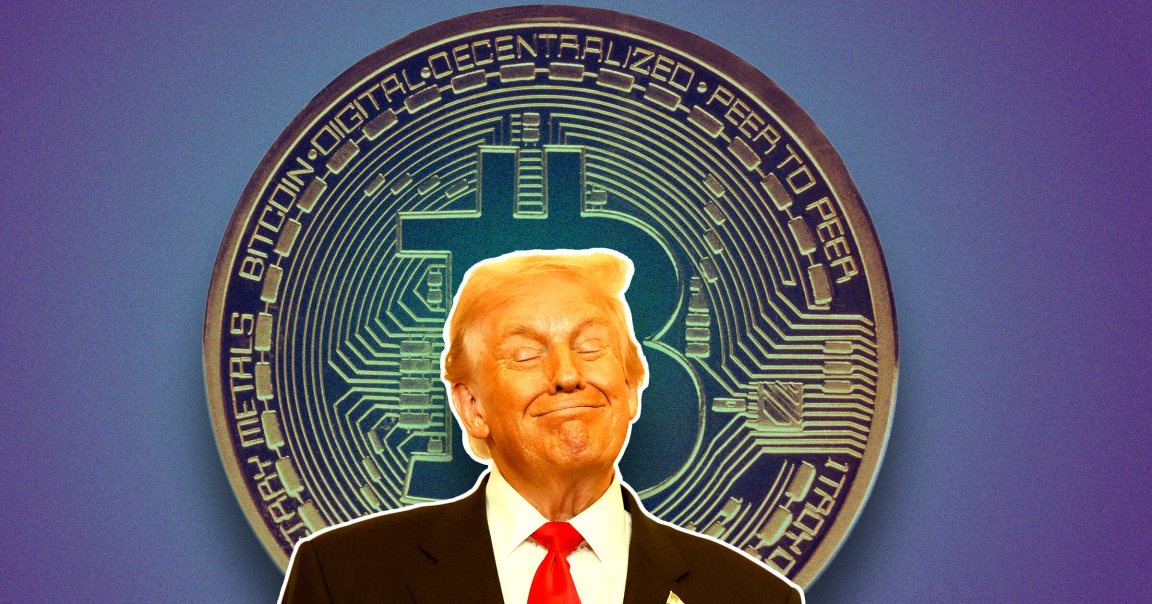
To strengthen America’s technological edge, President Donald Trump directed the government to buy $8.9 billion of Intel stock this summer, a controversial move that may be followed by a similar deal with quantum-computing companies getting millions of dollars in federal funding.
The splashy moves could endanger the prosperous American economy, according to an influential economist speaking to Politico — especially in tandem with the White House’s gutting of agencies that have historically collaborated with the private sector.
“I think the kind of capitalism Trump has is crony capitalism,” Italian economist Mariana Mazzucato told Politico. “I would describe crony capitalism as Mafia-like. You’re showing your upper hand. You’re handing out favors to some. But then divide and conquer. Picking and choosing without a particular strategy.”
“[H]e’s actually weakening the economy,” she summed up.
Mazzucato, a University College London economics professor and adviser to governments, argues that the Intel deal is poorly designed because it doesn’t have any conditions to incentivize the company to be build new products, while the government simply acts as a passive investor.
That kind of posture isn’t going to foster next-generation technology, Mazzucato said. A smarter approach, she says, would see a government put together a portfolio of companies in a sector, encourage them with subsidies and other incentives, and wait for a company or product to rise to the top via competition in the marketplace.
Mazzucato has written extensively about how governments should take equity stakes in companies, but not in the way the Trump administration is doing, which some have called a form of corporate welfare.
Corporate welfare causes monopolies to develop; monopolies are bad because consumers don’t get cheaper and better products, while companies don’t have outside pressure to innovate. If companies don’t innovate, other countries with better industrial policy and ambitious companies will eat America’s lunch.
“And I don’t think there is, under Trump’s administration, any policy that is kind of future and opportunity-oriented around innovation,” she said. “It’s just about getting companies either to come back or preventing foreign companies from selling their goods in the U.S. It’s kind of preventing stuff from happening, versus that more positive, proactive making things happen that otherwise would not have happened.”
She called Trump’s economic policy an “idiosyncratic hodgepodge” because there doesn’t seem to be a clear strategy or a holistic roadmap to bolster the industrial backbone of America, where manufacturing has faltered to China and other countries.
“Trump is not asking, ‘What are the problems that need to be solved, and how can we have public investment to solve those problems?'” she said. “He’s just kind of throwing money around and imposing tariffs and taking these equity stakes and dismantling things.”
She also argued in the interview that Trump’s gutting of agencies such as the National Institute of Health and NASA will negatively impact the country’s competitive edge because these institutions, along with their funding, help foster the creation of new technologies, products and entirely new industrial sectors.
“What’s going to happen in the future is, U.S. competitiveness will wither away because he’s dismantling the backbone of U.S. competitiveness which has been, in the past, smart, capable, strategic, outcome-oriented, mission-oriented state agencies,” she said.
The invention of the internet and GPS, for instance, wouldn’t have been possible without the government encouraging the private sector, she said.
Any outcome from the Intel deal will probably play out over the ensuing years, so we don’t know the downstream impacts yet, but we already have proof that Trump’s attack on federal agencies and their funding is impacting America’s edge in tech and science with scientists moving overseas.
And all this is happening as the stock market goes on a roller coaster as people fear the overinflation of an AI bubble, whose bursting may also wreck the economy at least in the near term.
More on Trump: Trump Admin Says It’s Not Bailing Out the AI Industry Regardless of How Hard It Crashes